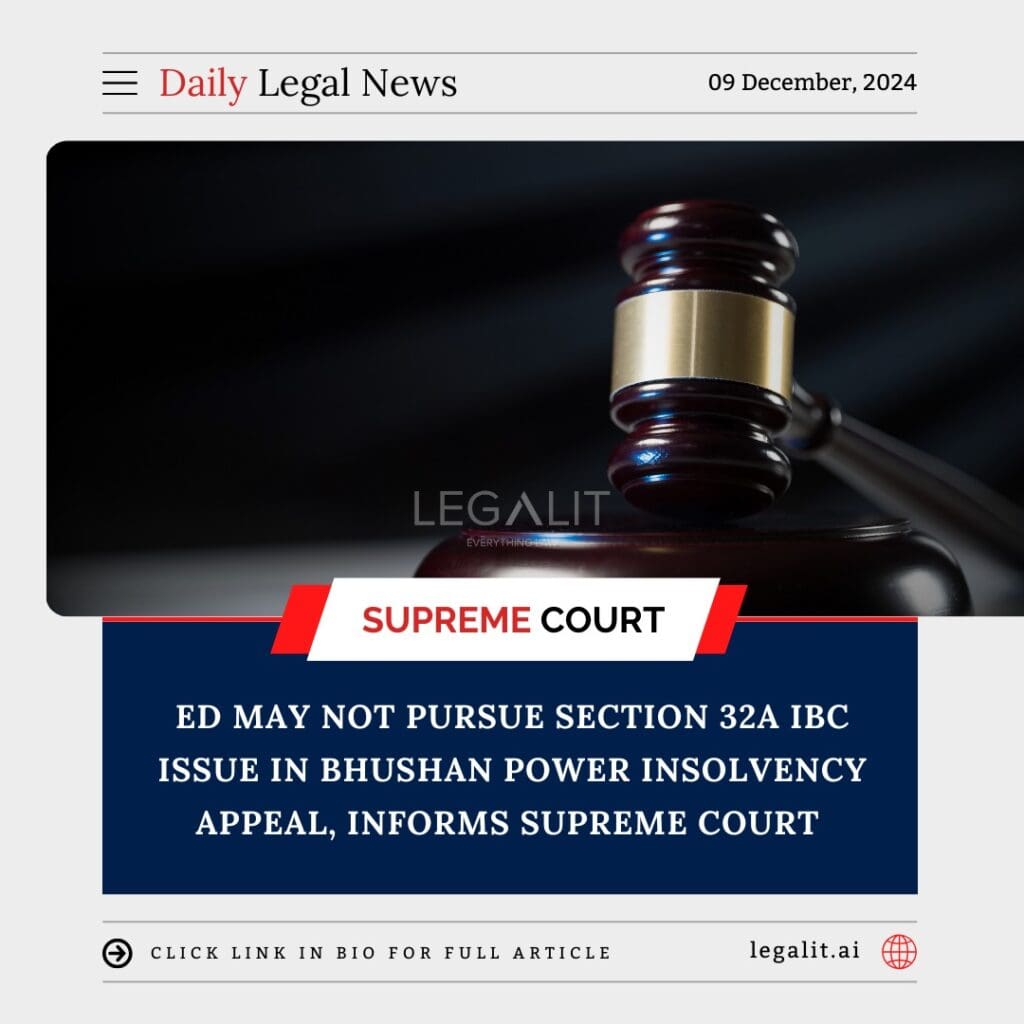
The Enforcement Directorate (ED) has informed the Supreme Court that it might not press the issue related to Section 32A of the Insolvency and Bankruptcy Code (IBC) in its appeal concerning the Bhushan Power insolvency case. The case involves the acquisition of Bhushan Power by JSW Steel and the ED’s concerns regarding the applicability of Section 32A in this context.
Background:
The Bhushan Power and Steel Limited (BPSL) insolvency case has been a subject of legal and financial scrutiny, particularly regarding the resolution plan put forward by JSW Steel. The ED had raised concerns about the potential shielding of criminal liability under Section 32A of the IBC, which protects a corporate debtor’s resolution applicant from prosecution for offenses committed prior to the resolution process. The ED had initially contested the applicability of this provision in the case but is now reconsidering its stance.
Court’s Rationale:
The Supreme Court had previously asked the ED to clarify its position regarding the applicability of Section 32A in the Bhushan Power insolvency matter. The ED’s decision to possibly refrain from pressing this issue suggests that the legal team may seek to focus on other aspects of the case or that a compromise might be reached on this point.
Existing Measures:
Section 32A of the IBC was introduced to facilitate resolution by protecting honest resolution applicants from prosecution for past offenses committed by the debtor company. The ED’s role in insolvency cases is to ensure that the legal process does not shield individuals from criminal liability, especially in cases of fraud or financial misconduct.
Conclusion:
The ED’s decision not to pursue the Section 32A issue in its appeal indicates a shift in its strategy, potentially bringing the Bhushan Power insolvency case closer to a resolution. However, this development also signals the complexity of balancing criminal liability concerns with the objectives of corporate insolvency resolution under the IBC.